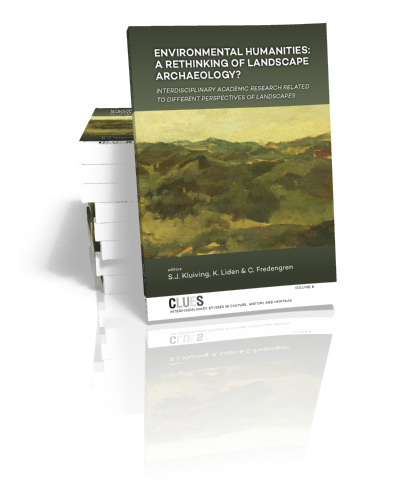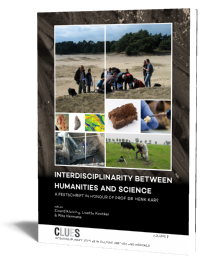Abstract:
There has been an increasing archaeological interest in human-animal-nature relations, where archaeology has shifted from a focus on deciphering meaning, or understanding symbols and the social construction of the landscape to an acknowledgement of how things, places and the environment contribute with their own agencies to the shaping of relations.
This means that the environment cannot be regarded as a blank space that landscape meaning is projected onto. Parallel to this, the field of environmental humanities poses the question of how to work with the intermeshing of humans and their surroundings.
To allow the environment back in as an active agent of change, means that landscape archaeology can deal better with issues such as global warming, an escalating loss of biodiversity as well as increasingly toxic environment. However, this does not leave human agency out of the equation. It is humans who reinforce the environmental challenges of today.
The scholarly field of the humanities deal with questions like how is meaning attributed, what cultural factors drive human action, what role is played by ethics, how is landscape experienced emotionally, as well as how concepts derived from art, literature, and history function in such processes of meaning attribution and other cultural processes. This humanities approach is of outmost importance when dealing with climate and environmental challenges ahead and we need a new landscape archaeology that meets these challenges, but also that meets well across disciplinary boundaries. Here inspiration can be found in discussions with scholars in the emerging field of Environmental Humanities.
Contents
Environmental humanities a rethinking of landscape archaeology?
Sjoerd Kluiving, Kerstin Lidén, Christina Fredengren
Nature and society: an integrated multi-perspective landscape approach in practice
Oscar Jacobsson
Travel books as landscape archaeology reports: from history to ecological responsibility: The Example of British and American Travellers in the Pyrenees
Francoise Besson
Fragments of the Wild: Wordsworth’s Yew Trees and Contemporary Archaeology
Andrew Hoaen
Geological and historical findings reveal differential anthropogenic substrate control in unique streets of Diemen, The Netherlands
Ronald van Gelder, Sjoerd Kluiving, Inger Leemans, Ruben den Ouden, Jan Goedhart
Re-thinking Deep Time Landscapes
Christina Fredengren


Dr.
S.J. Kluiving
Sjoerd Kluiving is an Associate Professor in Geoarchaeology and Anthropocene Sciences, with a special interest in Environmental Humanities. As a geologist and physical geographer involved in applying earth sciences to archaeology in interdisciplinary research and teaching, with emphasis on the Anthropocene. Project management in (field-based) evaluation of archaeological monuments, extensive teaching and research experience and initiator and project manager of involving cultural history in planning processes.
read more


Prof. dr.
K. Liden
Kerstin Lidén is a Professor in Archaeological Science with a special interest in Environmental Humanities. She has been part in initiating a special call for a post doc researchers in “Environmental Research in the Human Sciences Area” at Stockholm University, an interdisciplinary call directed to all areas in Human Sciences. Kerstin has also initiated a new field of research in Sweden, Glacial Archaeology, where she and her research group perform regular inventories at melting glaciers and snow patches.
read more


Dr.
C. Fredengren
Christina Fredengren is an archaeologist with a particular engagement in the emerging discipline of Environmental Humanities, with a particular interest in deep time, gender, intragenerational justice and care, sacrifice and sacrificial landscape, human-animal relations, new materialism. Christina has developed the research school of Environmental Humanities at Stockholm University, is an experienced field archaeologist and has managed several large scale international research projects.
read more













